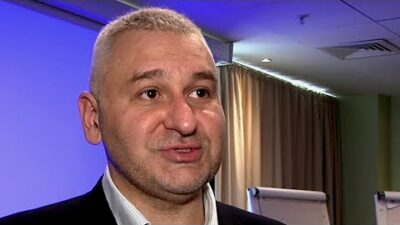The uprising of the Wagner PMC, led by Yevgeny Prigozhin, which almost turned into the first armed coup since the 1990s, dealt the biggest blow to Putin’s credibility in his 24 years in power.
Russian elites were shocked by the events that unfolded Friday and Saturday and began to question Putin’s control over the country, Bloomberg reported, citing insiders and people close to the Russian leadership.
According to them (sources told The Moscow Times earlier), Putin was repeatedly warned that the 62-year-old Prigozhin, who has created the largest private army in the country, might move columns of equipment and armed fighters to Moscow.
But the Russian president ignored all the signals and allowed Wagner to march across the country, take two cities with a population of millions and get so close to the capital that the authorities had to raise tanks and aircraft in an attempt to stop him.
Tensions among elites over the war in Ukraine, which instead of a victorious blitzkrieg turned into a bloodbath with tens of thousands of casualties, have been building up for a long time, Bloomberg sources said.
Gathered in prisons and colonies PMCs numbering up to 50 thousand fighters and running a pirate campaign with threats to the abodes of Rublyovka, Prigozhin long began to worry the Russian elite. He managed to gain the support of influential “hawks” and some members of the “war party” within the government, and after a series of accusations against the Defense Ministry and the exposure of myths of Russian state propaganda – to reach the hearts of the “deep people” and become a top-5 on the level of trust among Russian citizens.
And while Prigozhin has worried people close to Putin, the president has brushed aside all the warnings he has received, Bloomberg sources say. According to them, Putin did not act in time to pacify Prigozhin, which led to the crisis. The authorities demanded that all Wagner fighters sign a contract with the Defense Ministry by July 1, and Prigozhin, who is used to resolving issues one-on-one, raised his voice, demanding an audience with the Kremlin, Bloomberg writes.
Ruling Russia the longest since Josef Stalin, Putin has been able to survive every threat to his power, from mass protests to economic crises to outside pressure. The Kremlin is still preparing for Putin’s reelection to a fifth term so that he can stay in power until 2030. Although Prigozhin’s putsch, at first glance, did not reach its goals, and he himself disappeared from the media field and, according to Kremlin assurances, “will go to Belarus”, the outcome of the crisis is that both Russia and Putin will become weaker, according to a European intelligence assessment.
What’s happened is “the biggest defeat for Putin in his entire political career”, says political analyst Yekaterina Shulman,
“Prigozhin’s rebellion showed how fragile the Russian political regime really is”, she notes.





